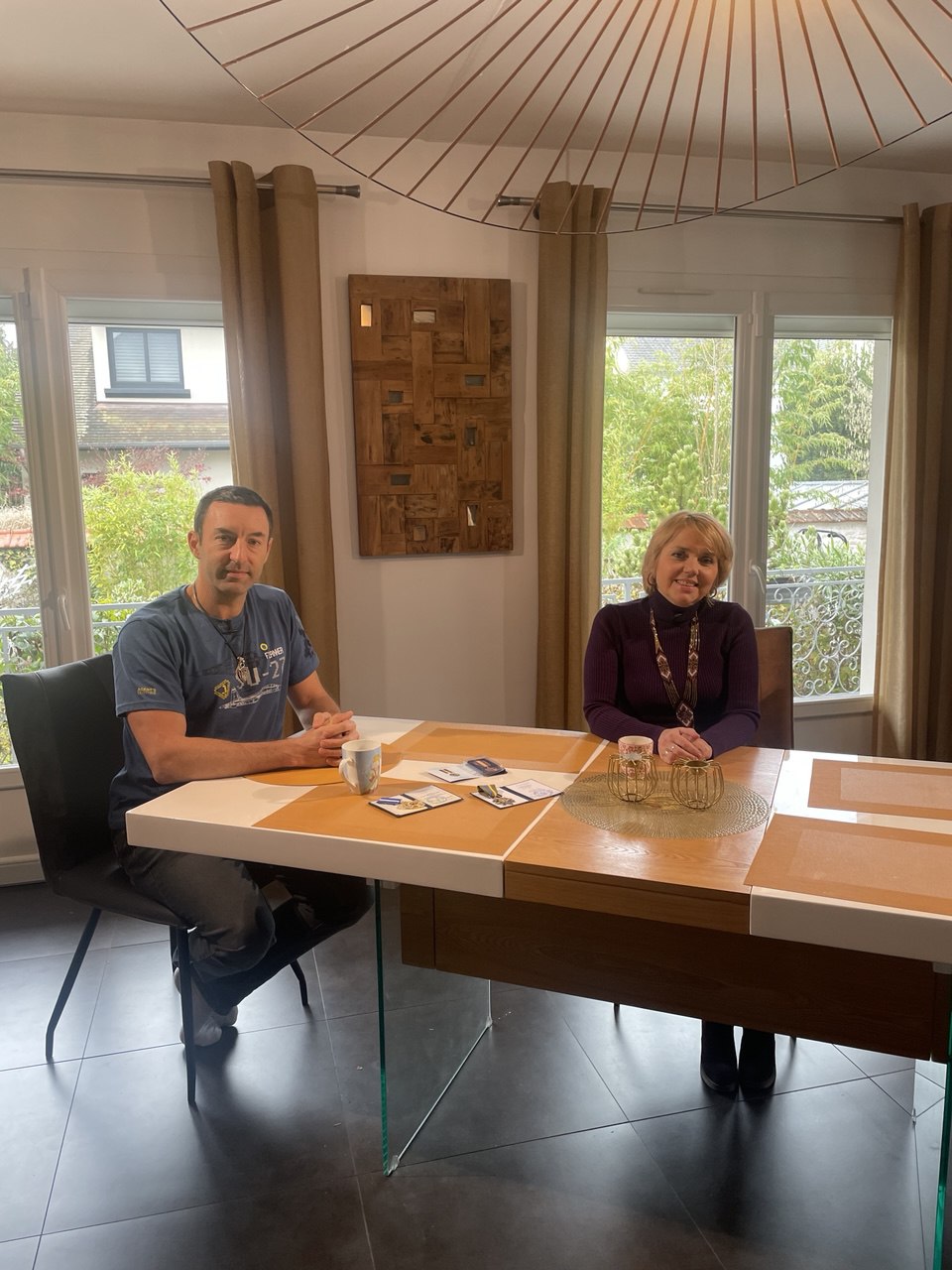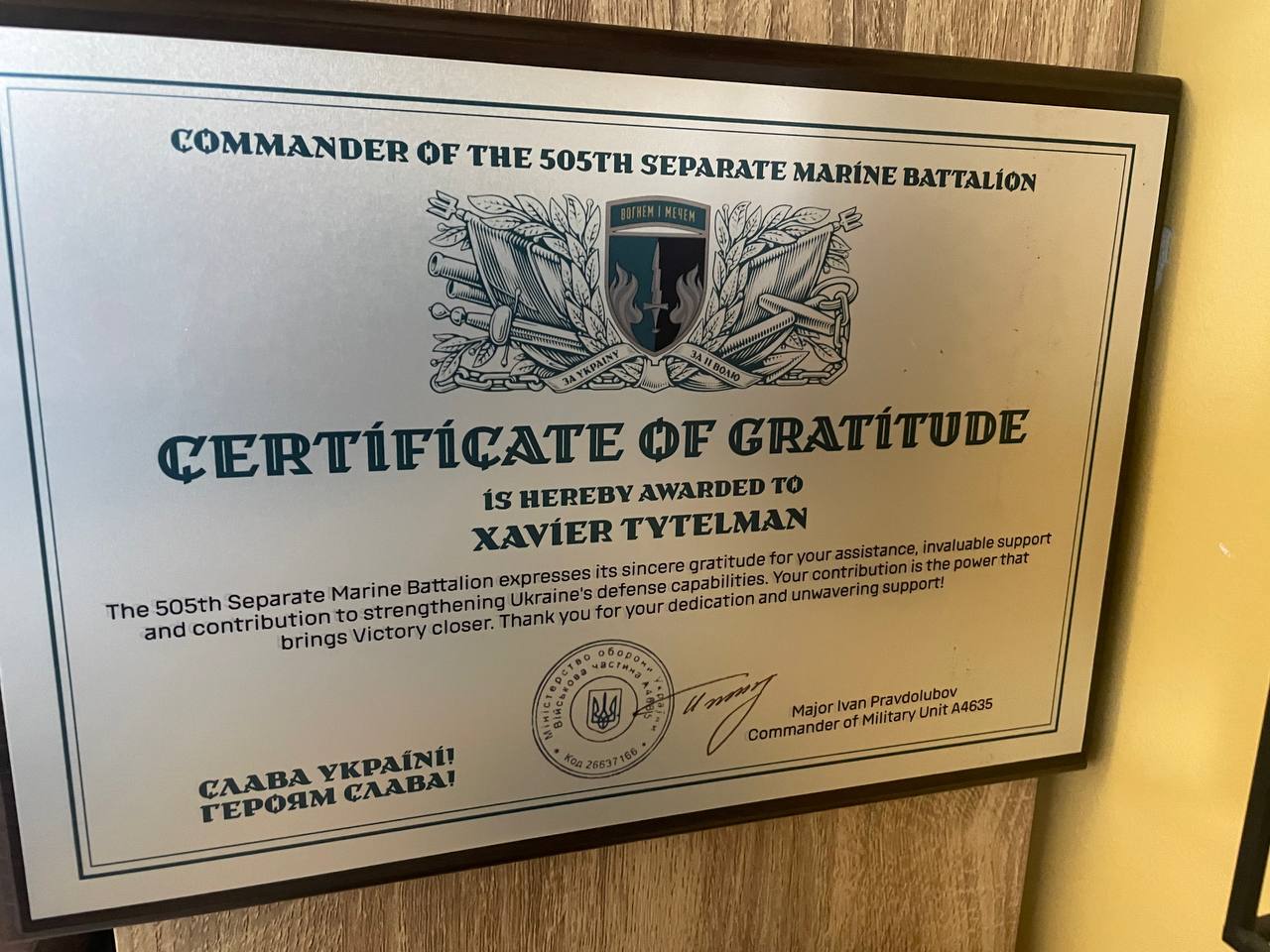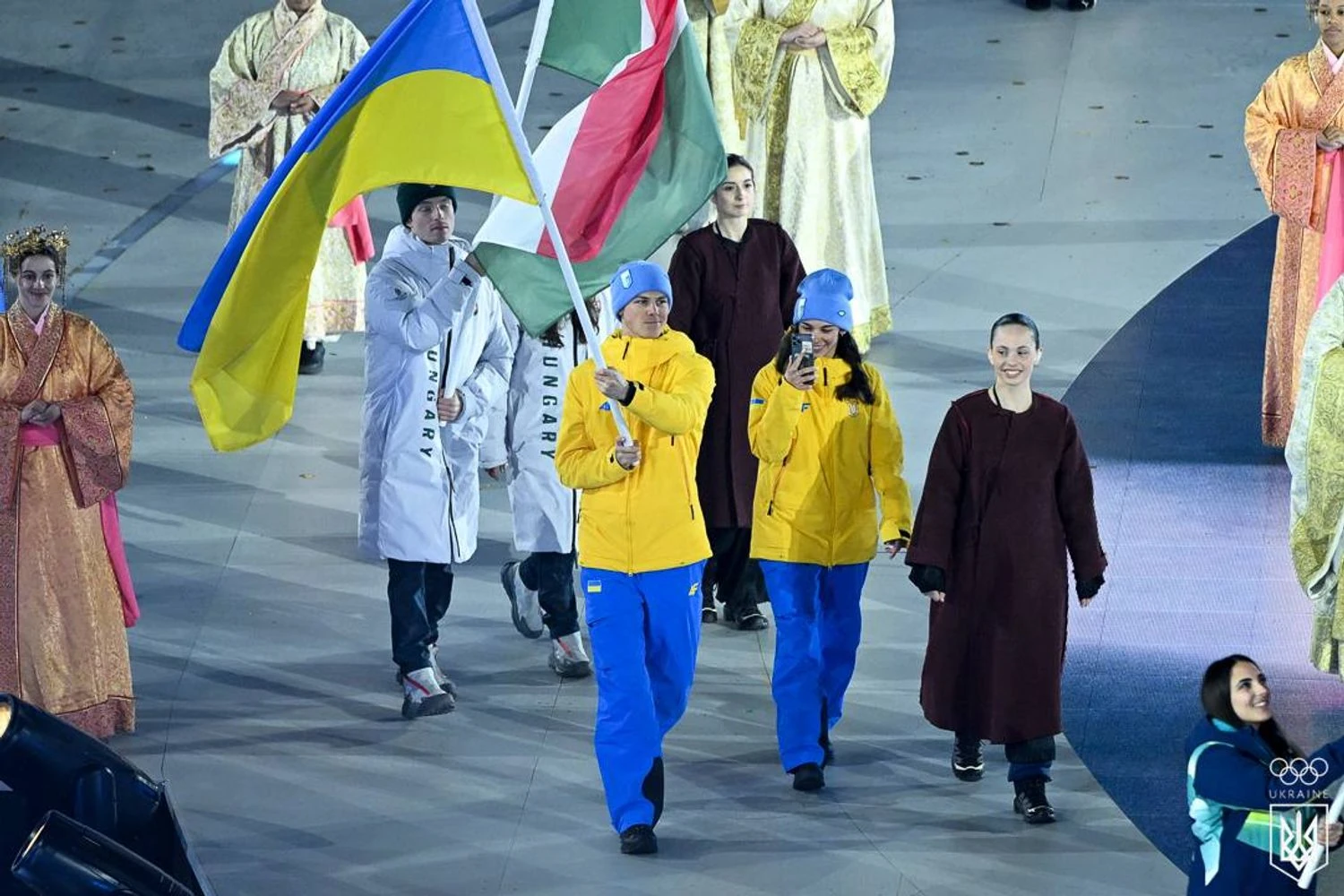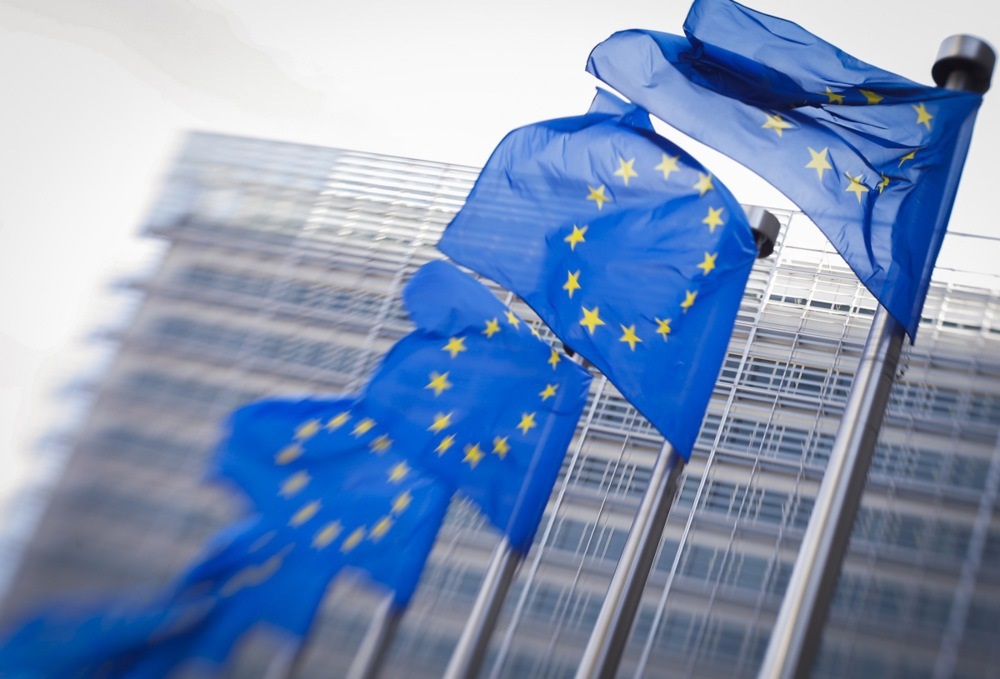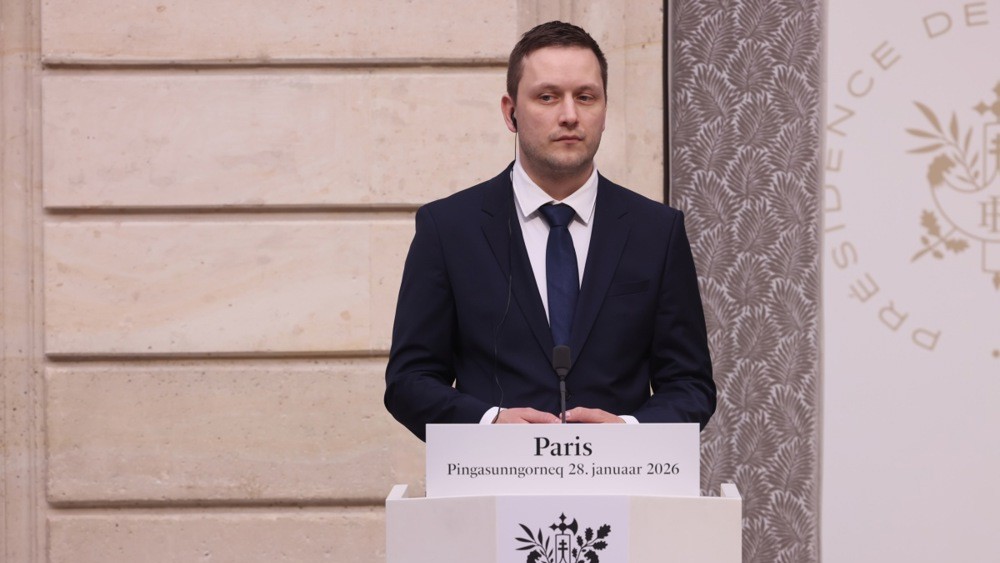Author: Oksana Melnychuk, special correspondent in France
Introduction. When solidarity becomes a weapon
In a world where political statements often resonate louder than real actions, French society remains one of those rare European voices that not only comment on the war but also take action. French journalists are dying while reporting from the front lines. French donors are raising millions of euros. French volunteers are arriving in the hottest spots of the front.
Among them is Xavier Titelman, an aviation expert, influencer, and volunteer whose voice has become one of the most prominent in the public discussion about supporting Ukraine.
Alongside him is Oksana Melnychuk, a Ukrainian journalist and communicator who has been telling France the truth about the war for years. Their meeting in Paris turned into a conversation about victory, losses, Europe's responsibility, and why French aid has become "the wings of Ukrainian resilience."
I. When projects are born from despair: how the French devised a way to "close the sky"
Back in 2022, Ukrainians had one request for the world: close our sky. Militarily, this did not happen. But another response was born—civilian.
Oksana recalls:
"From the beginning of the war, everyone prayed to God to close the sky. And alongside military solutions, there appeared people who could not just sit idly. Thus, one wonderful project was born, which was hardly talked about—the project of Xavier and his colleagues."
The project was supported by almost all regions of France. In line is Poland, which only needs to give formal consent to expand the initiative to its territory.
II. Ukrainians abroad are not immigrants. They are ambassadors of war
Oksana reminds us of an important thought:
"When Ukrainians go abroad, it seems bad. But these are our avengers, our voices. These are people like Xavier, who do everything for Ukraine to win."
In France, hundreds of thousands of Ukrainians have become a bridge between the two countries—and it is thanks to them that hundreds of volunteer structures, collectives, and charitable platforms work tirelessly.
III. The main question for French politicians: what does "victory" mean?
Xavier speaks about how in Paris they avoid a direct answer:
"Today we must finally define what it means to 'win.' This is a huge problem."
And he immediately explains:
1. Military realism
"Militarily, it no longer seems realistic that Ukraine can liberate all territories solely by force of arms."
2. But strategically—Ukraine has already won
"Russia wanted to change the Ukrainian government. They failed to do so. They lost tens of thousands of units of equipment and over a million people. This is a huge victory. Just not a complete one."
3. Europe is absent
"The problem today is that Europe is politically invisible. Yes, it provides economic and military assistance, but it does so slowly. We lost a unique chance in 2022. If everything necessary had been done then—today there would be a peace agreement. We could have saved hundreds of thousands of people."
IV. The faith of Ukrainians in the future is stronger than that of the French
Xavier says that over the years of war, he has visited Ukraine 16 times:
"It seems to me that Ukrainians believe in their future more than the French believe in theirs. They are ready to build. And this is an investment that will pay off—like in Poland 30 years ago."
The comparison is very accurate: Poland in the 1990s was poorer and less industrialized than modern Ukraine. And now Kyiv can follow the same path.
V. Media, propaganda, and great French support
Oksana asked Xavier directly: "What role do French media play in this war?"
1. Perception has changed
"Previously, it was thought that French journalists were too critical of Zelensky. But support has only grown."
2. Russian propaganda is losing influence
"Yes, the media give voice to different positions. But propaganda does not work. Only 30-40% of people are susceptible. And this figure is falling—even among the traditionally pro-Russian far-right."
3. The French donate more every year
"My community raised over a million euros in a year. And this year we will break the record."
VI. Why do the French go to fight in Ukraine?
Oksana: "Tell me about those French who have died. About those who continue to come. Who are they?"
Xavier:
1. They are idealists
"They see that their home—Europe—is being attacked. And they defend Ukraine just as they would defend France."
2. They are saviors
"There are those like sniper Frank. He has over 60 confirmed kills of Russians. But he did not come to 'kill'; he came to protect children."
3. They are firefighters, not politicians
"They do not talk about democracy or values. They say: we came to put out the fire."
4. They are people who pay the highest price
"More than thirty French have died. Friends. People whose names will never be heard on television again."
VII. The French on the front: who are they really?
The contrast to Russian propaganda is striking:
"I was in Azov last week—and there was an anarchist, a Moroccan, a former legionnaire. This is not what Russian propaganda tells. This is a community of people from different cultures who came to fight for one cause."
And Xavier's community provides them with what sometimes saves lives: thermal imagers, cars, night optics.
VIII. Oksana's words. When support becomes wings
At the end of the meeting, Oksana said words that could become a slogan for Ukrainian-French friendship:
"We call your solidarity the wings of our resilience and the arrows of our resistance. Today we met yet another such arrow—our great friend of Ukraine, Xavier."
IX. Small symbols of a great war
Xavier shows his collection of military patches:
"Because Napoleon burned Moscow. Historically, this is not entirely accurate, but a symbol is a symbol. Among our patches is the patch 'Burn Moscow Again.' And this is a patch of French-speaking fighters: Napoleon, with French and Ukrainian colors combined."
In this small detail lies the essence of the war: symbols matter. Sometimes a small piece of fabric speaks more than a president's speech.
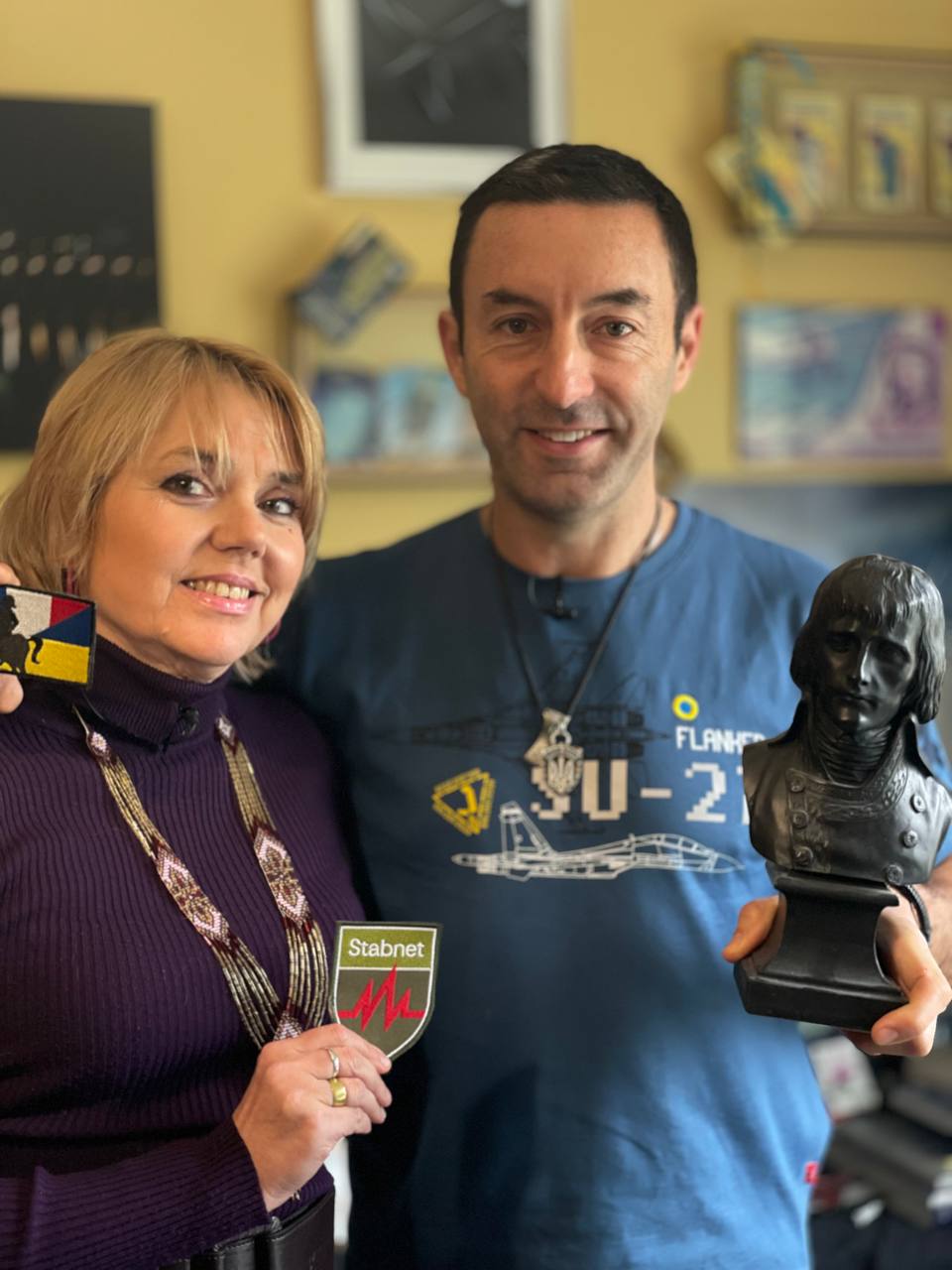
Conclusion. France and Ukraine stand together
Ukrainians often underestimate how much France supports Kyiv. And the French sometimes underestimate how much their solidarity matters.
And this conversation between Xavier and Oksana is yet another proof: the world stands on people, not on governments. On volunteers, not on protocols. On those who believe in freedom just as strongly as Ukrainians believe in tomorrow.
